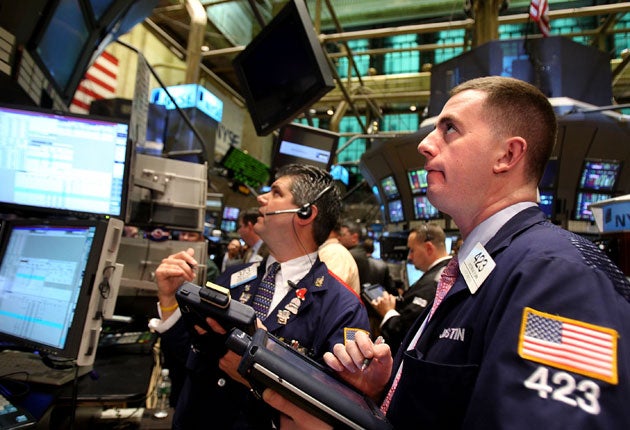Ben Yearsley: Miton's spot on for the risk-averse
The Analyst

Your support helps us to tell the story
From reproductive rights to climate change to Big Tech, The Independent is on the ground when the story is developing. Whether it's investigating the financials of Elon Musk's pro-Trump PAC or producing our latest documentary, 'The A Word', which shines a light on the American women fighting for reproductive rights, we know how important it is to parse out the facts from the messaging.
At such a critical moment in US history, we need reporters on the ground. Your donation allows us to keep sending journalists to speak to both sides of the story.
The Independent is trusted by Americans across the entire political spectrum. And unlike many other quality news outlets, we choose not to lock Americans out of our reporting and analysis with paywalls. We believe quality journalism should be available to everyone, paid for by those who can afford it.
Your support makes all the difference.When selecting funds, investors have several clear choices to make. Index-tracking or active management? Developed or emerging markets? What often gets overlooked is the choice between a fund that will stay fully invested and one that is more proactive with asset allocation.
Some funds are built with the flexibility to hold large amounts of cash if the manager believes that will help protect investors during times of volatility. The majority, however, take the view that the job of a fund manager is to invest in stocks and shares and the fund should stay roughly fully invested at all times. There are pros and cons to both approaches and certainly there is room for a variety of strategies in a balanced portfolio of funds.
One fund that can go heavily into cash and other defensive assets is the Miton Strategic Portfolio managed by Martin Gray. Until recently, the fund was one of the top performers in its sector after its cautious approach paid off during the market turmoil of late 2007 and 2008. During 2007 the fund was 41st out of 113 funds in its sector – a creditable performance – but did even better in 2008 when it ranked first. This defensive strategy has been largely maintained into 2009 so the fund has missed out on the market rally.
So the question is how does Mr Gray invest? Well his emphasis is always on making money for investors over the long term, not chasing short-term surges or investing in relation to a specific benchmark. He will happily use cash when he feels it is appropriate to do so and won't restrict this to sterling, but potentially to euros, yen, dollars etc. He will also invest globally to seek out the most attractive opportunities.
The Miton Strategic Portfolio invests in other funds. Unusually, however, Martin Gray places more emphasis on asset allocation (ie choosing the right assets, countries and sectors in which to invest) than on fund selection.
Mr Grey and his colleagues at Miton therefore spend a lot of time doing economic research and trying to identify which parts of the market offer the best prospects. Once they have identified an area they like, they will typically back this conviction by purchasing one of the more aggressive funds of that type.
Running a fund in this way is notoriously difficult, which is why it is especially important to assess funds like this over long periods of time (at least five years) to see how they perform throughout the market cycle.
Mr Gray's current view is that the market is predicting a full and speedy economic recovery, but he doesn't believe things will go that smoothly. One of his major worries is that the stimulus packages haven't helped many of the households or small businesses that they were designed to help. His view is that it is the financial markets that have been stimulated, not the real economy, and that markets could experience a sudden shock. He is therefore retaining cash in the portfolio ready to buy cheap assets in the future.
He believes that the markets will carry on going upwards for some time before it realise its mistake, but his longer-term view is influencing the portfolio of the portfolio at present. Approximately 35 per cent is in cash and more than 20 per cent in government bonds. Overall there is only 20 per cent currently invested in shares, and the majority of these are listed outside of the UK and are fairly defensive businesses offering good yields.
Is Martin Grey a permanent pessimist? I don't think so, it's just that he hates to lose money for his investors. Nobody can be right all the time, and the current market seems especially difficult to predict.
This is the kind of fund that should appeal to investors who would rather have their fund manager err on the side of caution. It could also complement more bullish funds as part of a balanced portfolio.
Ben Yearsley is an investment manager at Hargreaves Lansdown, the asset manager, financial adviser and stockbroker. For more information about the funds included in this column, visit www.h-l.co.uk/independent . Mark Dampier is away.
Join our commenting forum
Join thought-provoking conversations, follow other Independent readers and see their replies
Comments